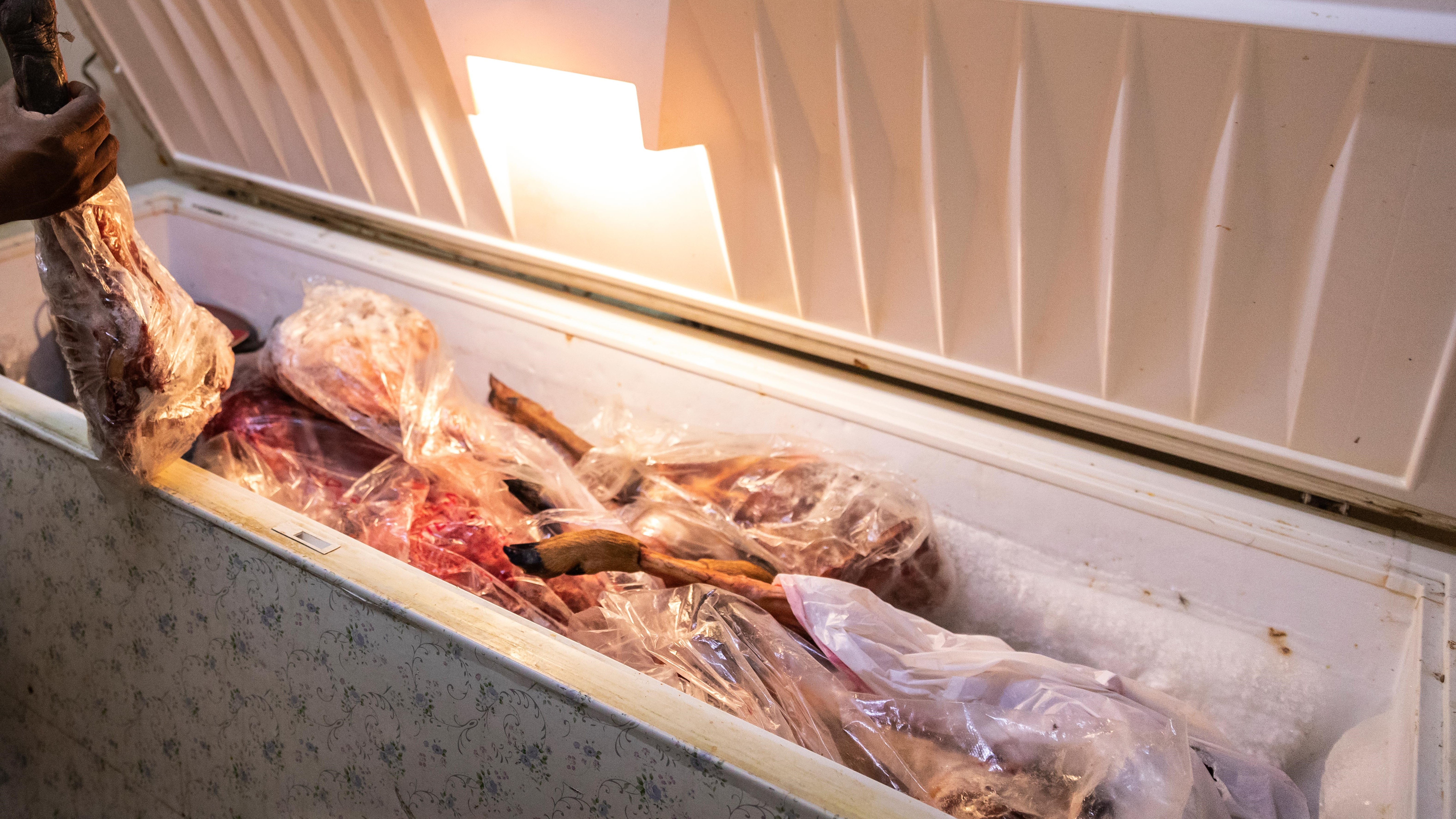SUR - ΨA - WITHDRAWAL AND RECALL
Food Safety

Suriname / Food safety
DISTRIBUTION
WITHDRAWAL AND RECALL
questions
2 answers
document title
text/abstract
Article 15:
1. If, on the basis of the self-checks or other information, a danger to public health is established or suspected, the establishment must immediately inform the Fish Inspection Institute, so that it can take appropriate measures.
2. If there are reasonable grounds for suspecting non-compliance, the Fish Inspection Institute shall carry out the necessary checks and if such suspicion is confirmed, it shall take appropriate measures, including the withdrawal of approval.
Article 16 [extract]:
1.Where the Head or operator of an establishment considers or if there is reason to believe that meat and/or other products of animal origin, including game meat, processed, packaged, repackaged, stored, transported and distributed by the operator, which does not meet food safety and/or quality requirements, the operator shall immediately initiate procedures to withdraw the product in question from the market and inform the competent authorities there.
2.Where, in cases referred to in paragraph 1, the products do not meet the food safety and/or quality requirements, the destruction of the meat or other products of animal origin shall be destroyed […]
3.The operator of an establishment shall effectively provide the necessary information to users of meat and/or other products of animal origin as to the reason for its withdraw and, if necessary, the products already supplied to them shall be recalled where other measures are not sufficient to achieve a high level of protection of public health
4.The operator of an establishment responsible for retail or distribution activities which do not concern the packaging, labelling, safety or integrity of the meat and/or other products of animal origin must, within the limits of its activities, initiate procedures for the de-marketing of products which do not meet the food safety and/or quality requirements and contribute to the traceability of meat or animal origin to the extent of its capabilities.
5. The operator of an establishment shall immediately inform the Veterinary Service of the action taken to prevent risks arising from the use of meat and other products of animal origin which do not meet food safety and/or quality requirements.
6. Each person shall be obliged to cooperate with the competent authorities in accordance with the relevant rules if it may prevent, limit or eliminate a risk relating to meat or products of animal origin.
7. The operator of an establishment shall be responsible for all expenses associated with the recall and further handling of the recalled meat and products of animal origin, including the cost of destruction.
8. The operator of an establishment shall keep a record of any complaints made concerning the safety or quality of the meat or product of animal origin, including game-based meat, for at least three (3) years
1 answer
document title
text/abstract
Article 15:
1. Operators of facilities maintain records containing data from purchase, production and sales, from receipt to delivery, including export to final destination, as well as other data, further established by the Minister.
2. The records are kept for traceability and kept in good order for a period of three years. The operator must make his registers available to the Veterinary Service at all times, upon request.
Article 16 [extract]:
1.Where the Head or operator of an establishment considers or if there is reason to believe that meat and/or other products of animal origin, including game meat, processed, packaged, repackaged, stored, transported and distributed by the operator, which does not meet food safety and/or quality requirements, the operator shall immediately initiate procedures to withdraw the product in question from the market and inform the competent authorities there.
2.Where, in cases referred to in paragraph 1, the products do not meet the food safety and/or quality requirements, the destruction of the meat or other products of animal origin shall be destroyed […]
3.The operator of an establishment shall effectively provide the necessary information to users of meat and/or other products of animal origin as to the reason for its withdraw and, if necessary, the products already supplied to them shall be recalled where other measures are not sufficient to achieve a high level of protection of public health
4.The operator of an establishment responsible for retail or distribution activities which do not concern the packaging, labelling, safety or integrity of the meat and/or other products of animal origin must, within the limits of its activities, initiate procedures for the de-marketing of products which do not meet the food safety and/or quality requirements and contribute to the traceability of meat or animal origin to the extent of its capabilities.
5. The operator of an establishment shall immediately inform the Veterinary Service of the action taken to prevent risks arising from the use of meat and other products of animal origin which do not meet food safety and/or quality requirements.
6. Each person shall be obliged to cooperate with the competent authorities in accordance with the relevant rules if it may prevent, limit or eliminate a risk relating to meat or products of animal origin. 7. The operator of an establishment shall be responsible for all expenses associated with the recall and further handling of the recalled meat and products of animal origin, including the cost of destruction.
8. The operator of an establishment shall keep a record of any complaints made concerning the safety or quality of the meat or product of animal origin, including game-based meat, for at least three (3) years
Article 20 [extract]:
1. Before entering the slaughterhouse, the person landing a slaughter animal shall submit the information or documents required under paragraph 4 to the operator or the person in charge of the slaughterhouse.
2. A slaughter animal shall be admitted to the slaughtering establishment by the operator or person in charge of the slaughtering establishment only if the prescribed information or documents have been provided to it. […]
